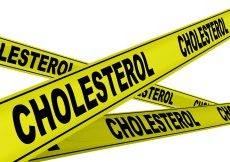A new study just published in the Journal of the American Medical Association finds that opioids are not an effective solution for chronic pain.
In this article, researchers from the University of Minnesota studied 240 patients who had chronic back, hip, or knee arthritis pain. Half of the study subjects received opiates; the other half received non-opiate pain medications. Patient progress was evaluated at 3-months, 6-months, 9-months, and one year.
The study found:
- There was no difference in pain-related function between the two groups.
- At 12 months, the nonopioid patients had less pain than did those who received opiates.
- “The opioid group had significantly more medication-related symptoms over 12 months than the nonopioid group”
The study authors write:
“Among patients with chronic back pain or hip or knee osteoarthritis pain, treatment with opioids compared with nonopioid medications did not result in significantly better pain-related function over 12 months. Nonopioid treatment was associated with significantly better pain intensity, but the clinical importance of this finding is unclear.”
Previous research has found that about 20% of patients with musculoskeletal pain are prescribed narcotic pain medications for their symptoms, and another recent study found that 36% of people who overdosed from opiates had their first opioid prescription for back pain.
Another recent study found that chiropractic patients are less likely to use opiates for their pain than are medical patients.
From this research, it seems clear that it’s risky to prescribe opiates for musculoskeletal pain. Chiropractic care is a proven safe and effective approach for both chronic and acute back pain.
Krebs EE, Gravely A, Nugent S, Jensen AC, DeRonne B, Goldsmith ES, Kroenke K, Bair MJ, Noorbaloochi S. Effect of Opioid vs Nonopioid Medications on Pain-Related Function in Patients With Chronic Back Pain or Hip or Knee Osteoarthritis Pain: The SPACE Randomized Clinical Trial. JAMA. 2018 Mar 6;319(9):872-882. doi: 10.1001/jama.2018.0899.





Leave a comment